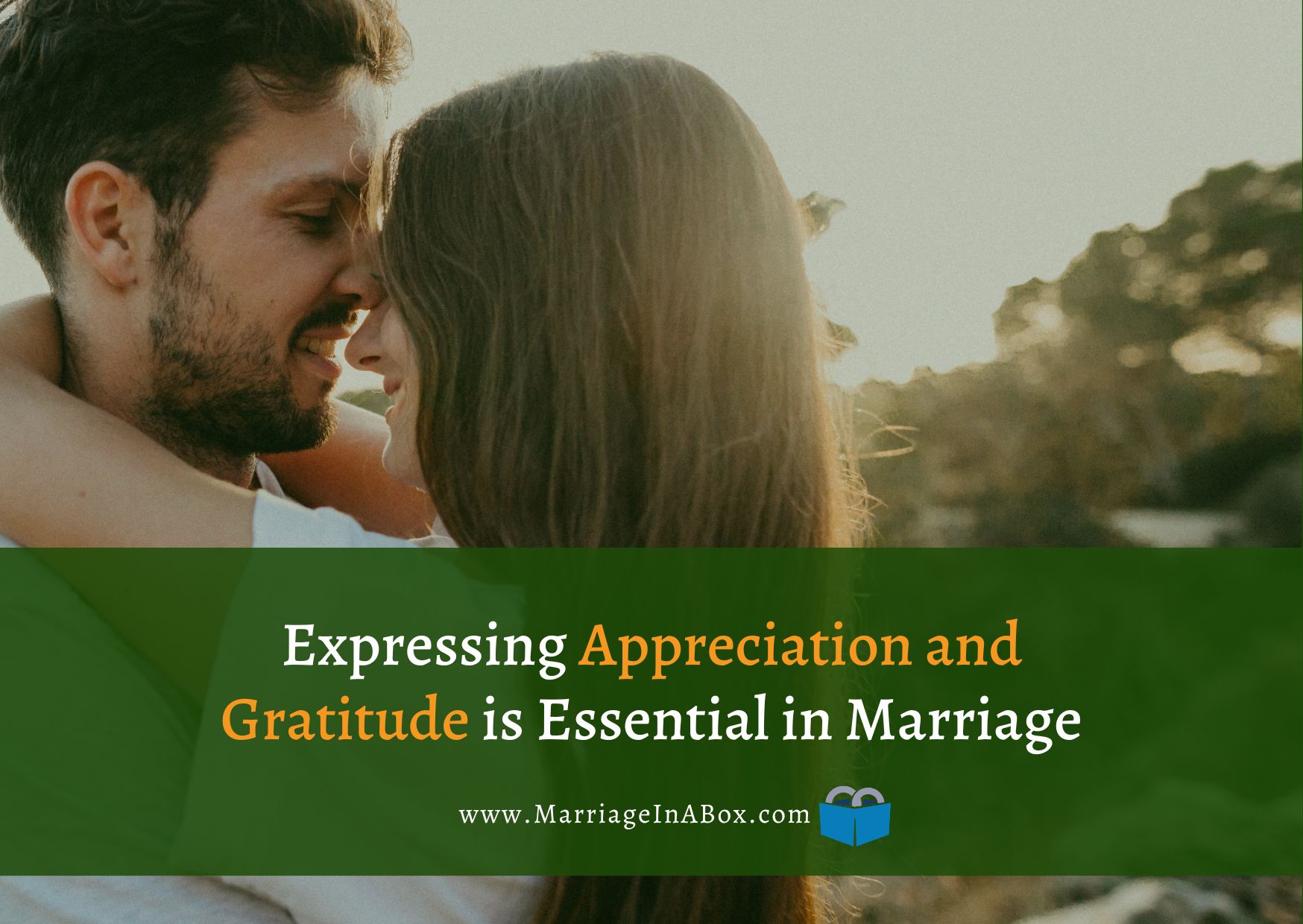Expressing Appreciation and Gratitude is Essential in Marriage
Posted on

Everyone wants their partner to respect and value what they do to make the relationship work. Maybe your significant other isn't acknowledging your efforts, or you feel taken for granted. Whatever the case, there are things you can do if you feel unappreciated in a relationship. A simple expression of gratitude improves well-being and relationships. Gratitude even makes you happier and healthier! Feelings of being unappreciated by your significant other, not a stranger or acquaintance, are more intensely painful.
What is Appreciation and Gratitude?
The Oxford English Dictionary says gratitude is a feeling of wanting to express your thanks.
Grateful people value others, enjoy simple pleasures (sunshine, smiles, etc.), express their gratitude, and are less likely to feel they are missing out on life. According to the Merriam-Webster dictionary, appreciation expresses admiration, approval, or gratitude.
The importance of appreciation and gratitude in marriage
It is reasonable and healthy to expect your partner to appreciate and make you feel valued over what you do for the relationship. Appreciation is significant in a relationship and without it you may think that nothing you do is good enough to make your partner happy, and the relationship will suffer. Part of a healthy relationship is feeling like you are appreciated and matter to your partner. If you feel unappreciated, you may worry that you are the only one fighting for the relationship or that your spouse wouldn't miss you if you left.
A lack of appreciation leads to resentment toward your partner, which is not part of a healthy relationship. Feeling loved, appreciated, and supported by our partners communicates that our partners care about and find us necessary, generating a sense of safety and security. Research has found that feeling and expressing gratitude in marriage leads to higher marital satisfaction because it shows that our partners view us as essential and valuable, which leads to greater satisfaction within the relationship.
Benefits of expressing appreciation and gratitude to your partner
Science shows that acknowledging and expressing gratitude can enhance the following:
● Better and more satisfying relationships
● Physical health
● Longevity
● Life satisfaction
● Positive mood
Conversely, gratitude can minimize :
● Depression
● Negative moods
● Anxiety
Expressing gratitude shows you care and generates compassion and optimism. It reciprocates kindness, celebrates the positive, and acknowledges that a good deed by the other person makes us happy and satisfied and helps our mental health. Gratitude paves the way for future acts of kindness to help us get through difficult times and flourish in good times, boosting and deepening our relationships and mental health.
Why is it so hard for people to express appreciation and gratitude?
The truth is that some people are more naturally grateful than others, and for some, gratitude takes work. These differences can be rooted in our brains, genes, and personalities. Gratitude isn't purely hard-wired; there are things you can do to bring more appreciation into your life.
1. Grateful genes
Research shows a gene that influences gratitude that helps explain why some people find it easier to feel and express gratitude than others. It is involved in the recycling of the neurotransmitter dopamine in the brain. There is also a genetic connection with people feeling less grateful and less sensitive to positive life events. These people may be super-sensitive to adverse life events, resulting in decreased positive personality traits like gratitude and forgiveness.
2. A grateful brain
Research suggests the possibility of differences in brain structure and activity between people who are more and less grateful; we can't say whether those differences result from nature or nurture or some interaction between the two.
3. Personality pitfalls
Our genes and brains aren't the end of the story, as certain personality factors can also act as barriers to gratitude. Envy, materialism, narcissism, and cynicism can diminish thankfulness. It may be difficult or impossible for people who are envious or materialistic to be grateful.
Five Ways to Show Your Appreciation and Gratitude
Showing gratitude to your partner can have many benefits. If you struggle to find ways to show appreciation, these tips may help you cultivate gratitude in your relationship:
1. Compliment your partner out loud.
2. Help give your partner a break from the workload.
3. Involve the children in thanking and appreciating your partner.
4. Write notes, texts, or letters of appreciation and gratitude.
5. Be thankful for your partner even when they aren't present.
In this season of gratitude and thanks, remember that you can strengthen your relationship simply by sharing your appreciation for your partner.
A lack of appreciation for your partner can devalue them and harm your marriage. When partners express gratitude and appreciation, their marriages can become more robust. Marriage in a Box offers helpful suggestions for becoming a more appreciative spouse.
Marriage In a Box provides access to tools and techniques professionals use to address relationship issues. The site allows users to set goals, earn rewards, and find marriage coaching. Users can also check out the available kit and sources of information online.
Learn more about our Couples Therapy Exercises